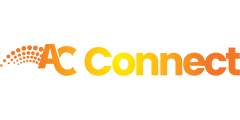Created 07/2020
Like many of you, the Amputee Coalition is monitoring COVID-19 (novel coronavirus) as it continues to evolve day by day. As a nonprofit health advocacy organization, we want to communicate and engage on emerging health news responsibly. We understand that this is a difficult time for us all. Below, please find some tips and resources to ensure your mental and emotional well-being during this time of pandemic and social distancing.
Amputee Coalition Peer Support Programs
- Support Groups
As the Amputee Coalition learns of monthly support group meeting cancellations, we will update our Support Group Meeting Calendar. We encourage all interested support group attendees to contact a registered support group from our Support Group Network prior to all monthly meetings to learn if the meetings have been cancelled or moved to a virtual meeting. If you are a Support Group Leader and still want to keep your group members connected and engaged, we encourage signing up for a free conference call account with FreeConference.com so that your support group members can spend time together virtually. Other options for phone or video conference support group meetings include Google Hangouts, Skype, and Zoom.
- Certified Peer Visitors
Through the Amputee Coalition Support App, individuals living with limb loss and limb differences, as well as family members who are caring for a loved one with limb loss or limb difference, can request and receive a peer visit from a Certified Peer Visitor, and connect with the National Limb Loss Resource Center® and Peer Support department for additional support and resources. Our free app offers in-app text messaging and in-app video chatting while providing Certified Peer Visitors who are registered app users a convenient method for scheduling, conducting, and reporting peer visits. The Support App will work on both Android and iOS mobile devices and is available on the Apple App Store and Google Play Store. This app is also available using a desktop or personal computer through a Web browser. Virtual peer visits can also be requested to the Amputee Coalition Peer Support department using our online Request a Peer Visit form, calling 888-267-5669, ext. 8124, or emailing peersupport@amputee-coalition.org. Please visit our How to Find Support webpage to learn more about the various ways to request and receive virtual peer visits.
Emotional Well‐Being Tips from NAMI and the CDC
The National Alliance on Mental Illness (NAMI) is the nation’s largest grassroots mental health organization dedicated to building better lives for the millions of Americans affected by mental illness. The Centers for Disease Control and Prevention (CDC) is the nation’s health protection agency. Below are some tips and guidance NAMI and the CDC have compiled to help your emotional well-being during the COVID-19 pandemic.
- Manage how you consume information by equipping yourself with information and resources from credible sources such as the CDC and the World Health Organization (WHO). It is also helpful to set limits on when and for how long you consume the news and information that is being provided on a consistent basis. Especially in the world of social media, it is extremely important to verify all sources of information and make sure they are
- Maintaining a healthy daily routine can be beneficial for your mental and emotional health. Even small actions, like making the bed and getting dressed, can make a difference for your own well- being. If you are able to work from home, take small breaks throughout the day or in between shifts.
- Try to practice good sleeping habits. The lack of sleep can often contribute to stress and anxiety and can be detrimental to your mental well-being.
- Exercise is a great way to care for both your mind and body. If you have been cleared by a medical professional to participate in exercise, continue to exercise while practicing social distancing. Gyms and most parks have been closed due to the pandemic so you may need to find alternative methods for physical activity. Even small movements like stretching can be beneficial.
- Become creative with staying connected to family and your social networks. Social distancing has changed the ways that we interact with each other. Thanks to technology, there are several ways that you can still interact with your family and social groups:
- Stay connected to friends and family via phone, email, social media, and
- Utilize platforms such as Google Hangouts or Zoom to conduct virtual activities like virtual dinners or coffee
- Regularly check in with family and friends who may have more limited social
- Express how you are feeling with the people you
If talking about COVID-19 affects your mental health, set boundaries on how often and when you would like to discuss the pandemic.
Find a Mental Health Community
Along with the Amputee Coalition’s Peer Support programs listed above, there are resources available to aid you in finding help with your mental well-being.
- Contact your local NAMI Affiliate for resources and programs in your
- Mental health resources are available from the NAMI HelpLine Monday-Friday between 10 a.m. and 6 p.m.
- Non-crisis, emotional, and preventive care support is offered over the phone through the Warmline Directory.
If you need immediate support:
- Crisis Text Line: Text “HOME” to 741741 to be connected with a trained crisis counselor.
- National Suicide Prevention Lifeline: If you or someone you know is in crisis-whether they are considering suicide or not-please call to speak with a trained crisis counselor 24/7.
- 800-273-8255
- SAMHSA Disaster Distress Helpline: Call the toll-free number to be connected to crisis counseling and support to people experiencing emotional distress related to natural or human-caused disasters through the Substance Abuse and Mental Health Services Administration (SAMHSA).
- 800-985-5990
- The Trevor Project Resources: Text “START” to 678678, instant message a counselor on their website, or call the number listed below 24/7. The Trevor Project is a national organization that offers support, included suicide prevention, for LGBTQ youth and their
- 866-488-7386
- Trans LifeLine: Call to be connected to this trans-led organization that connects trans individuals to support, community, and a variety of
- 877-565-8860
- Veterans Crisis Line: Connect with the Veterans Crisis Line to reach qualified responders with the Department of Veterans Affairs.
- 800/273-8255-Option 1
Additional Resources
- CDC: COVID-19 Stress and Coping tips
- NAMI COVID-19 Resource and Information Guide
- SAMHSA COVID-19 Resources and Information
We will continue to be here for you while we are all adapting to our new normal. You can reach out to us for support by calling 888-267-5669 or by clicking on any of these useful links:
It is not the intention of the Amputee Coalition to provide specific medical or legal advice but rather to provide consumers with information to better understand their health and healthcare issues. The Amputee Coalition does not endorse any specific treatment, technology, company, service or device. Consumers are urged to consult with their healthcare providers for specific medical advice or before making any purchasing decisions involving their care.
© Amputee Coalition. Local reproduction for use by Amputee Coalition constituents is permitted as long as this copyright information is included. Organizations or individuals wishing to reprint this article in other publications, including other websites must contact the Amputee Coalition for permission to do so, by emailing a request to rc@amputee-coalition.org.



